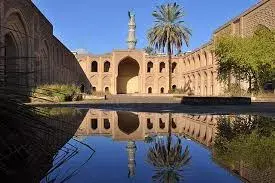The House of Wisdom

- The House of Wisdom, located in Baghdad, was one of the most prominent intellectual institutions of the Islamic Golden Age, and it played a crucial role in the development of science, philosophy, medicine, mathematics, and literature. Established during the reign of the Abbasid Caliph Harun al-Rashid in the late 8th century and later expanded under his son, Al-Ma'mun, the House of Wisdom became a renowned center for learning, attracting scholars and intellectuals from across the Islamic world and beyond. The institution was not only a library but also a place of research, translation, and discovery, where the works of ancient civilizations, such as the Greeks, Romans, and Persians, were translated into Arabic and preserved for future generations.
- At the House of Wisdom, scholars engaged in a variety of disciplines, including astronomy, medicine, mathematics, philosophy, alchemy, and engineering. The center became famous for its scientific advancements, many of which had a profound influence on the development of Western science during the Renaissance. Some of the most famous scholars associated with the House of Wisdom include the mathematician Al-Khwarizmi, whose work in algebra had a lasting impact on mathematics, and the physician Al-Razi, whose medical texts were widely studied for centuries. The institution also fostered intellectual discussions that contributed to the intellectual culture of the Islamic world, making it a beacon of knowledge and learning during its time.
- The House of Wisdom played a crucial role in the preservation and advancement of knowledge during a period when much of Europe was in the midst of the Dark Ages. By translating and commenting on the works of the ancients, the scholars of the House of Wisdom helped preserve ancient knowledge and make it accessible to future generations. Their work laid the foundation for significant advancements in the sciences and humanities. The institution also served as a platform for cross-cultural exchange, where scholars from different cultures and religions could collaborate and share ideas, contributing to the intellectual diversity of the Islamic world.
- Unfortunately, the House of Wisdom met a tragic end during the Mongol invasion of Baghdad in 1258. The library and many of its priceless manuscripts were destroyed, and the institution was dissolved. Despite its destruction, the legacy of the House of Wisdom continues to be remembered and celebrated as one of the most significant centers of intellectual achievement in history. Its contributions to the fields of science, philosophy, and literature have had a lasting impact on global knowledge, and its history remains an inspiration for the pursuit of learning and intellectual collaboration in the modern world.
